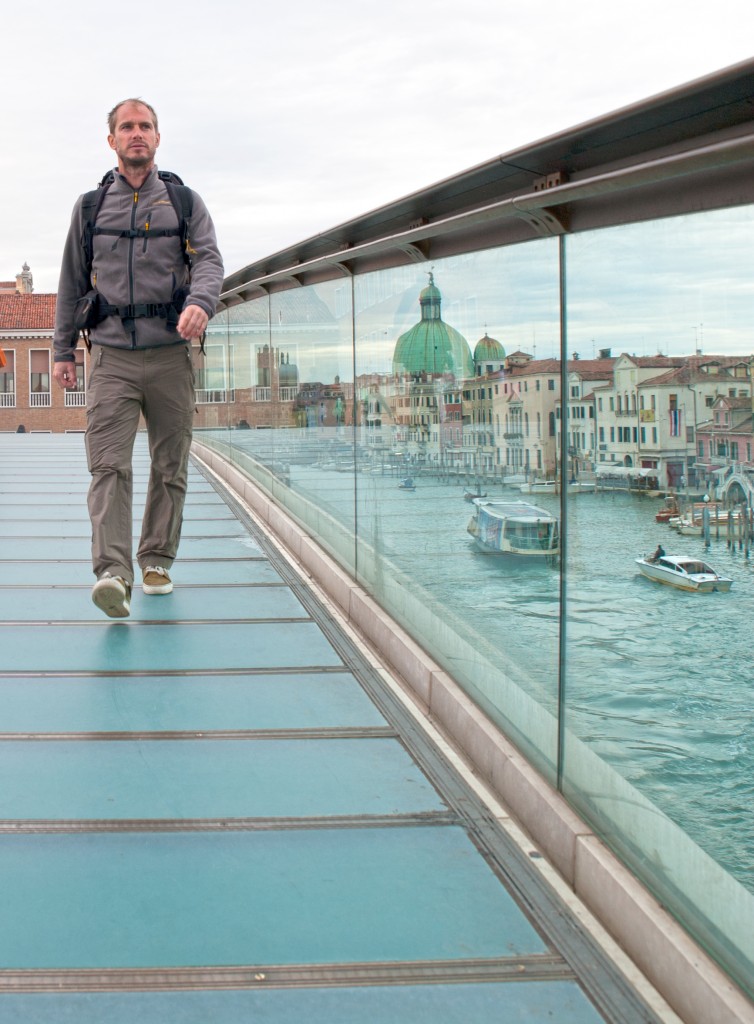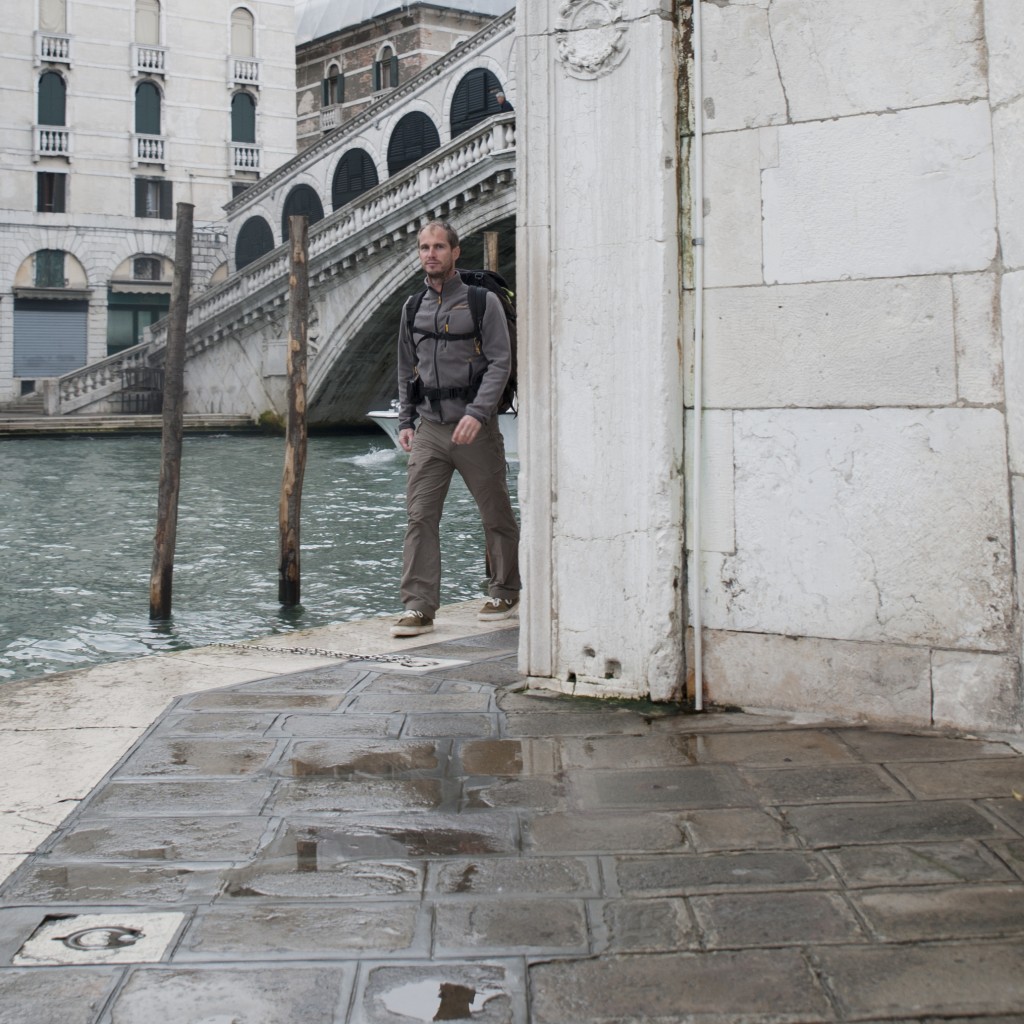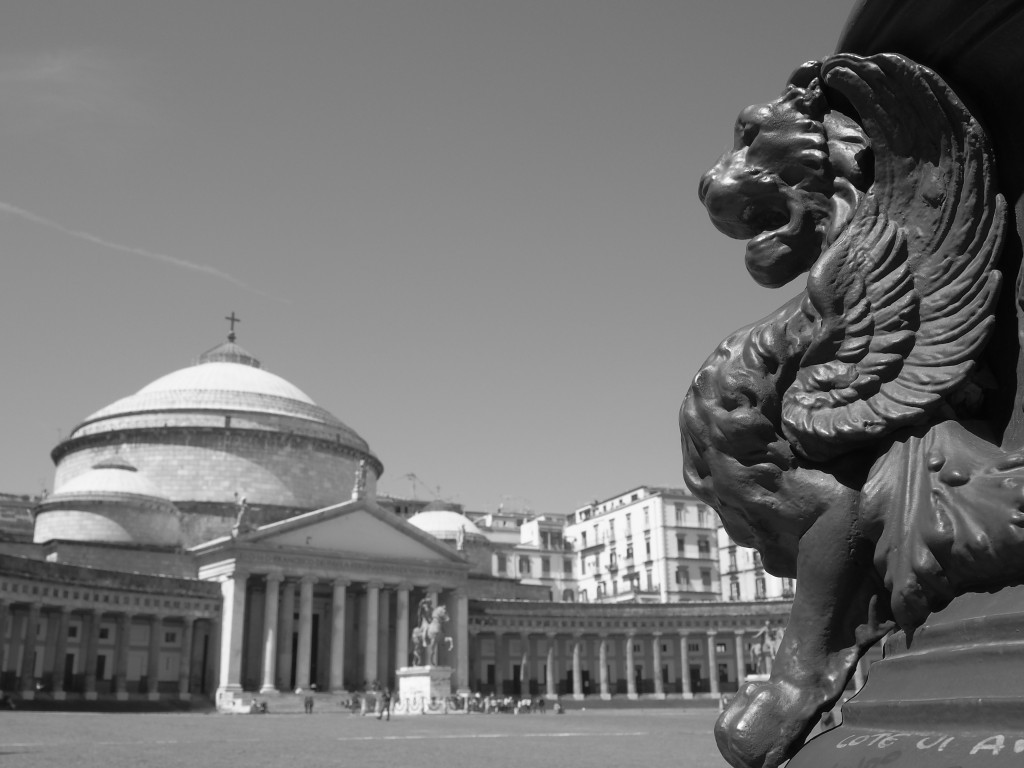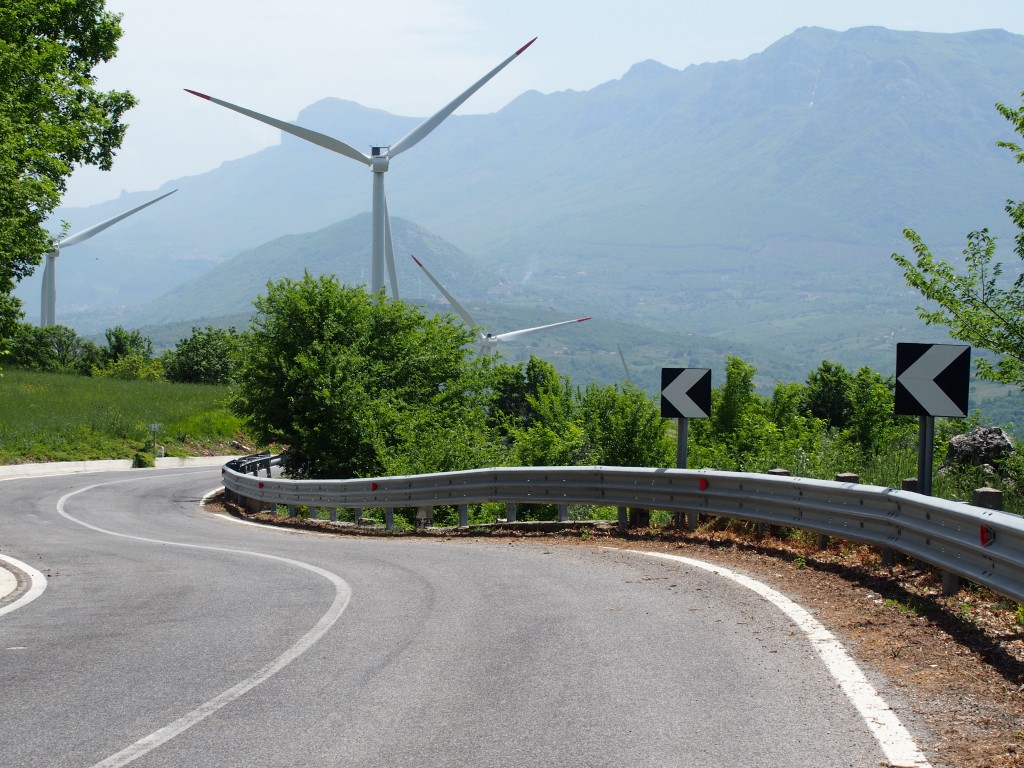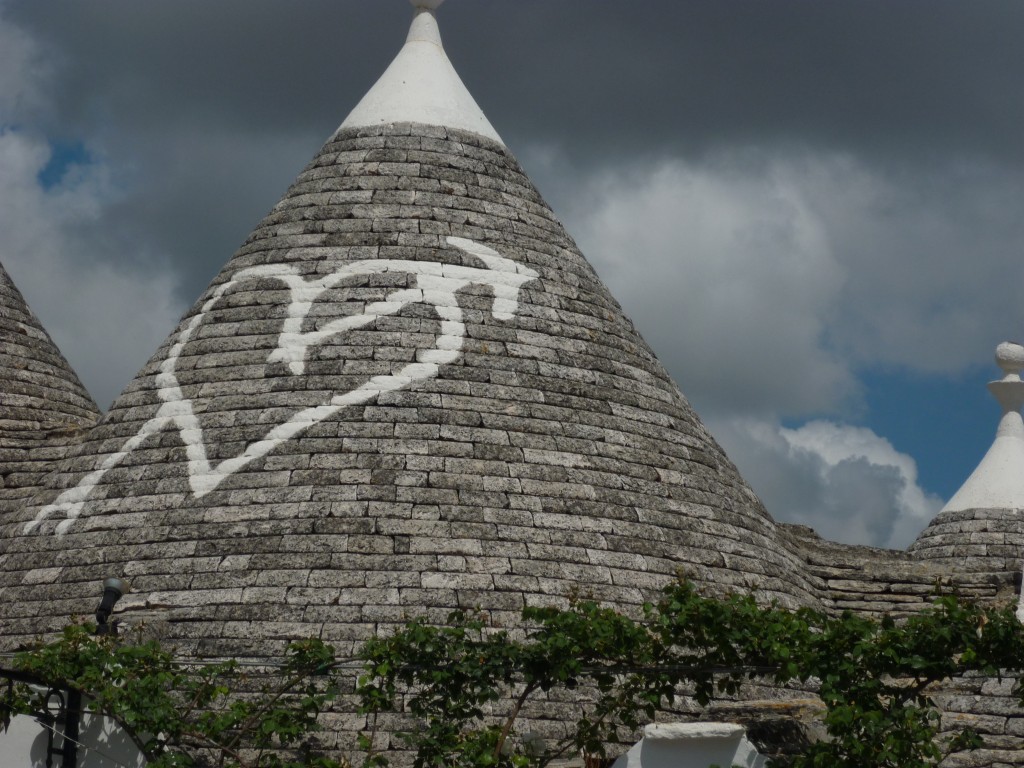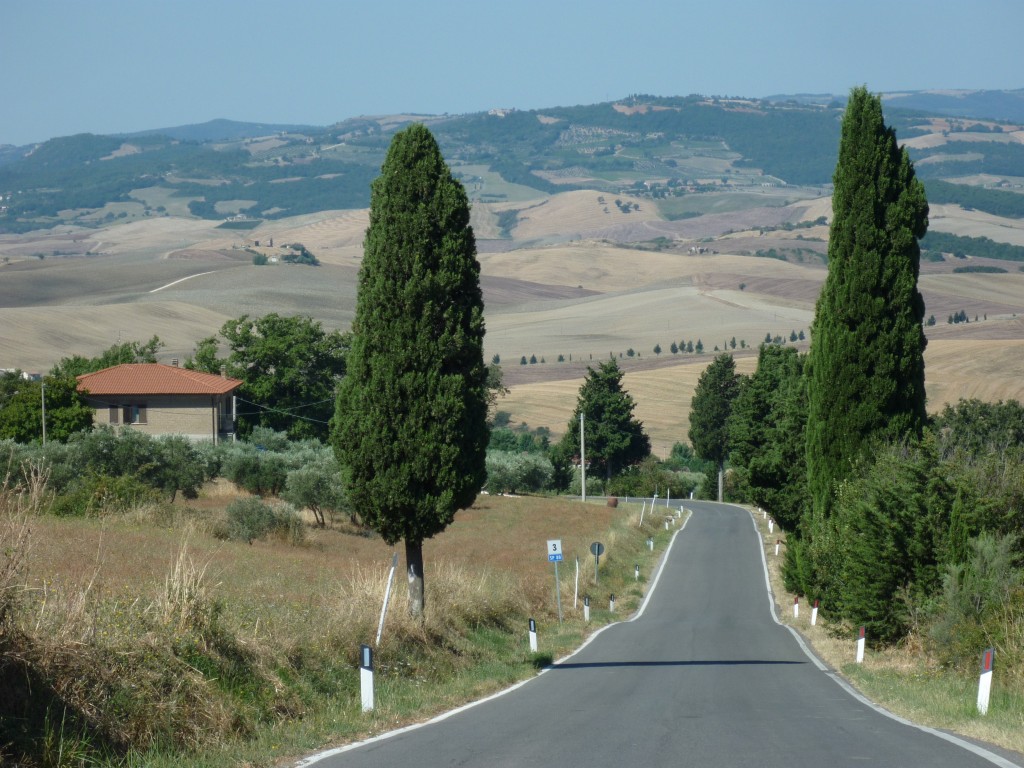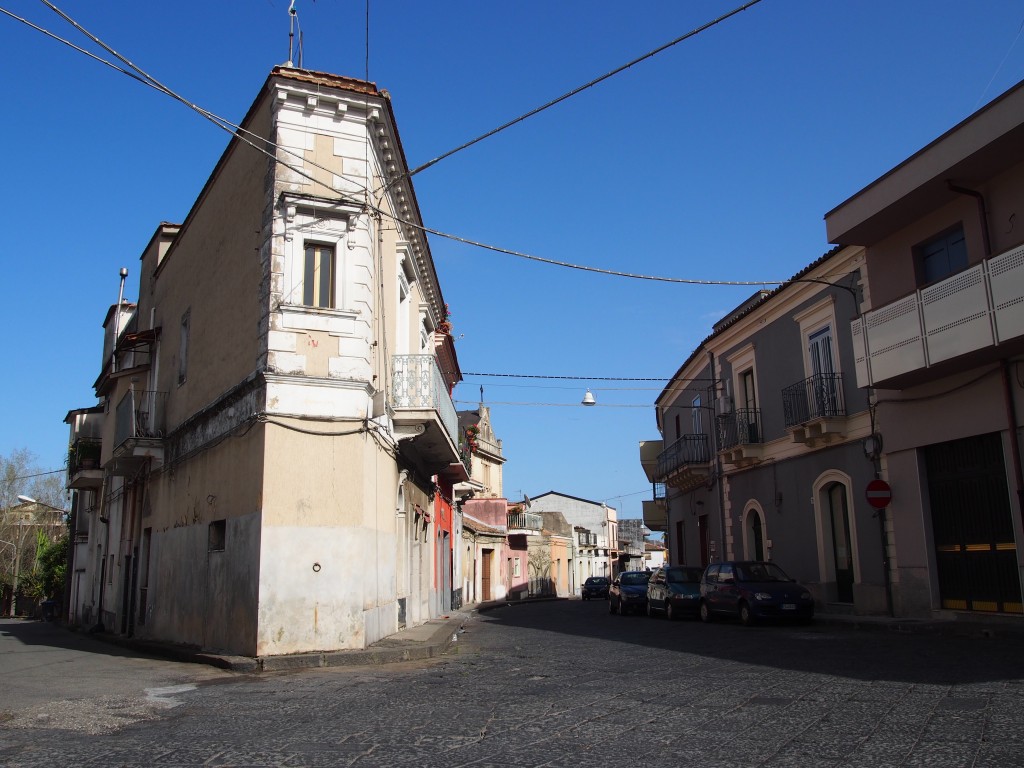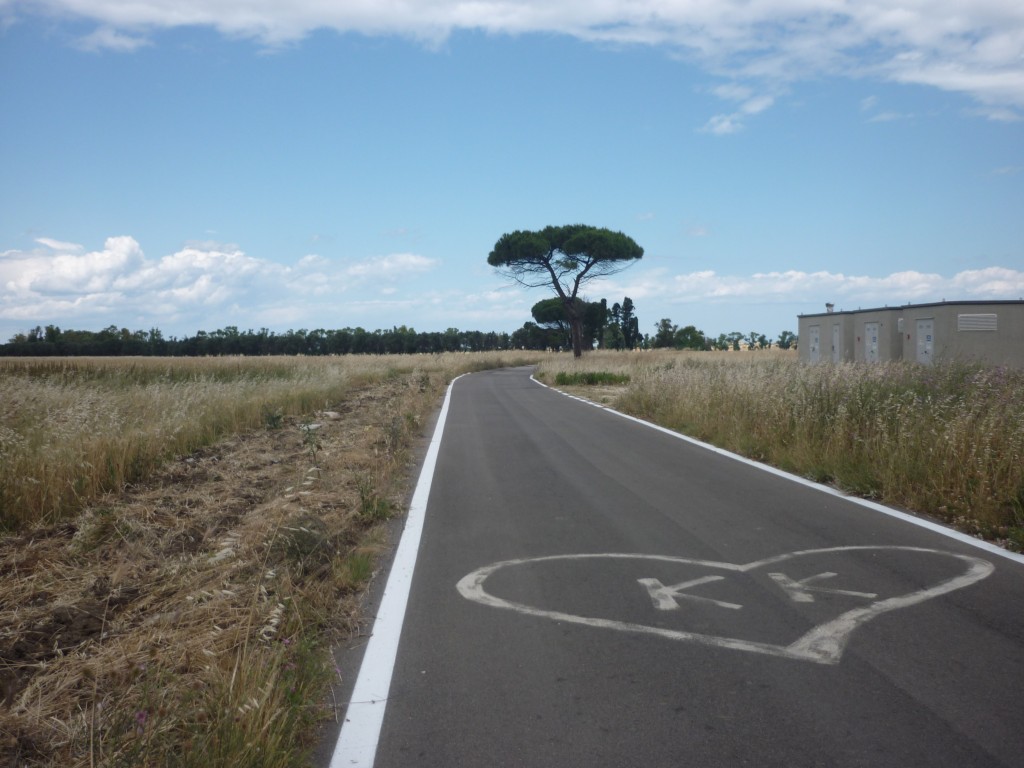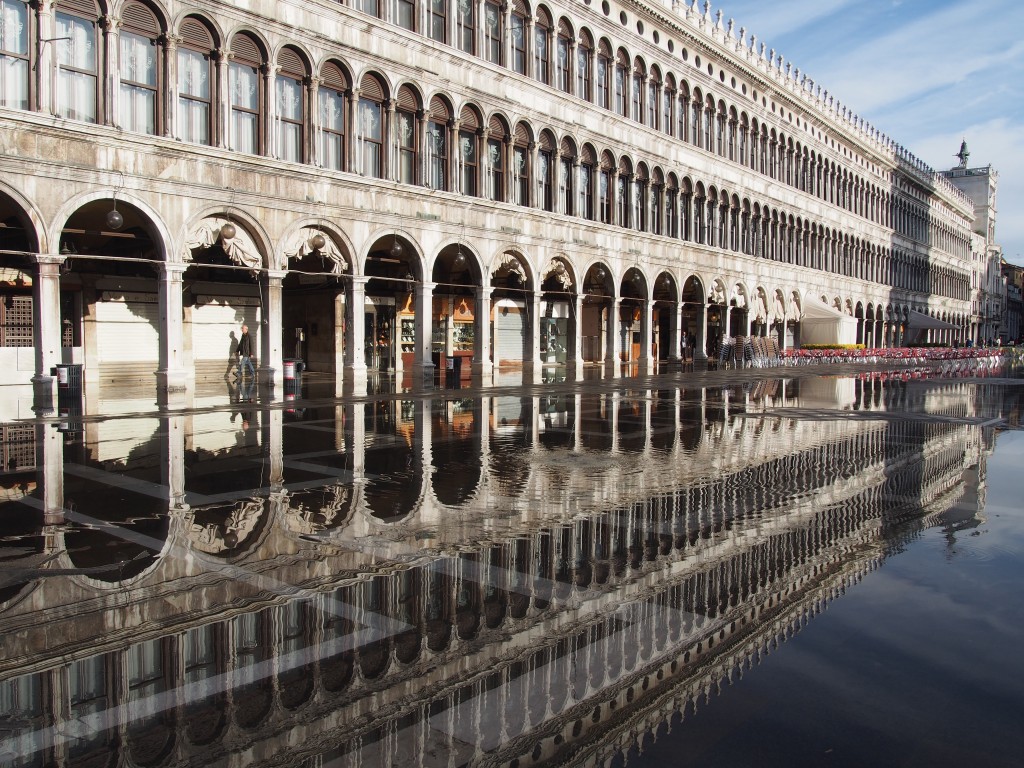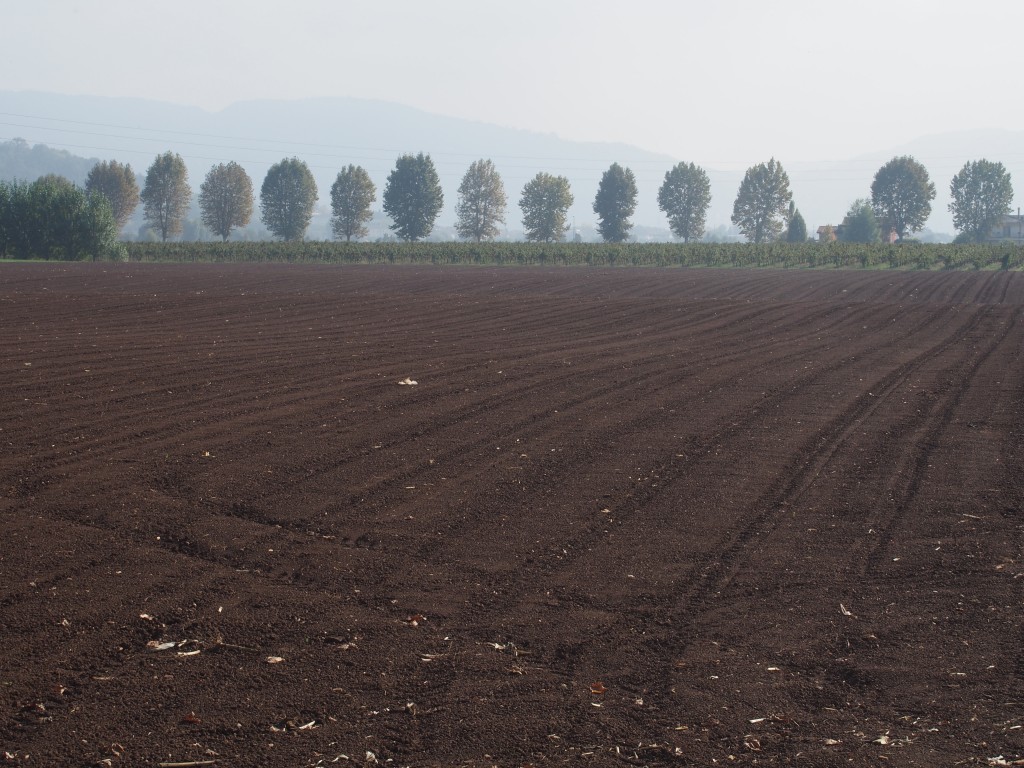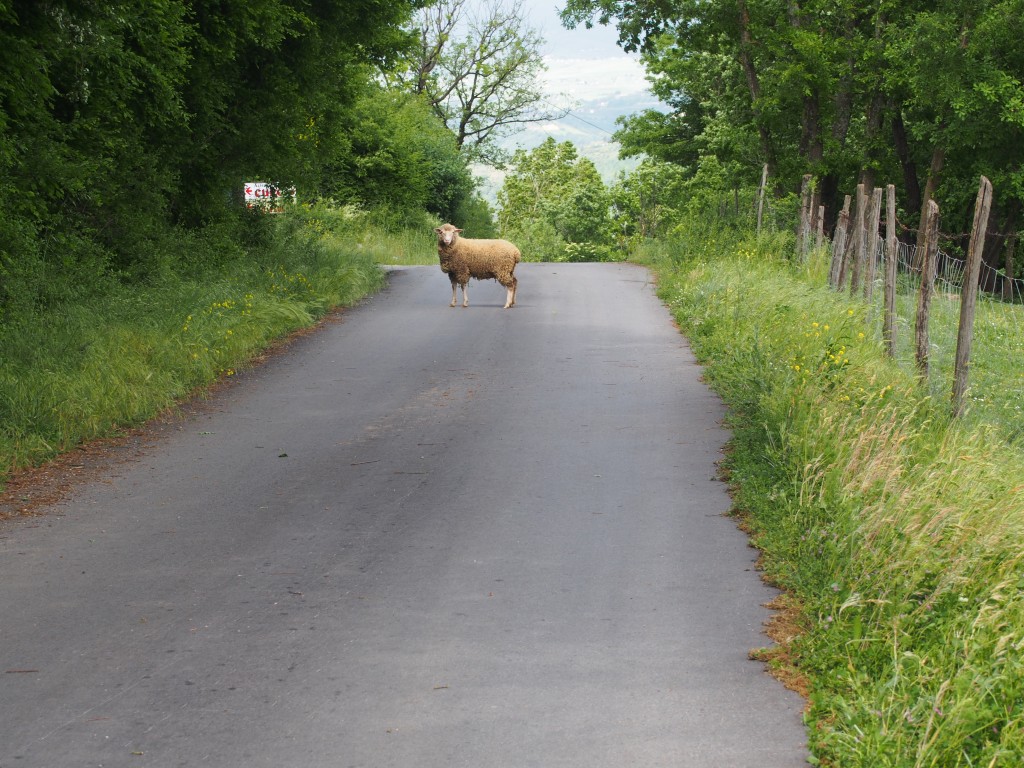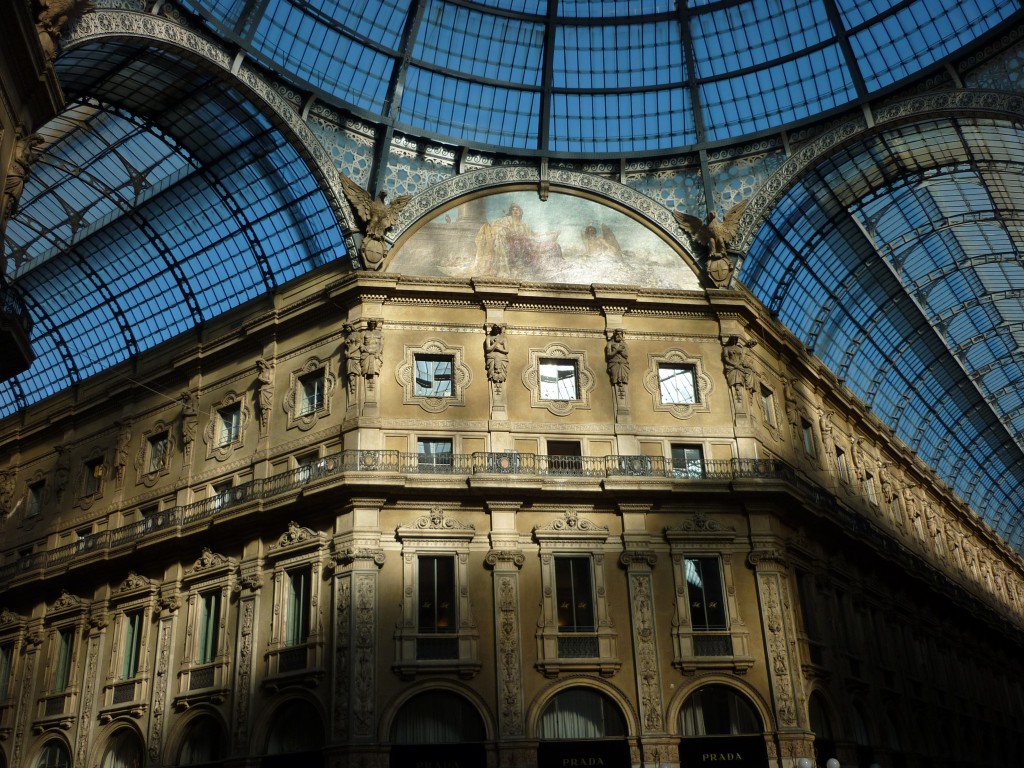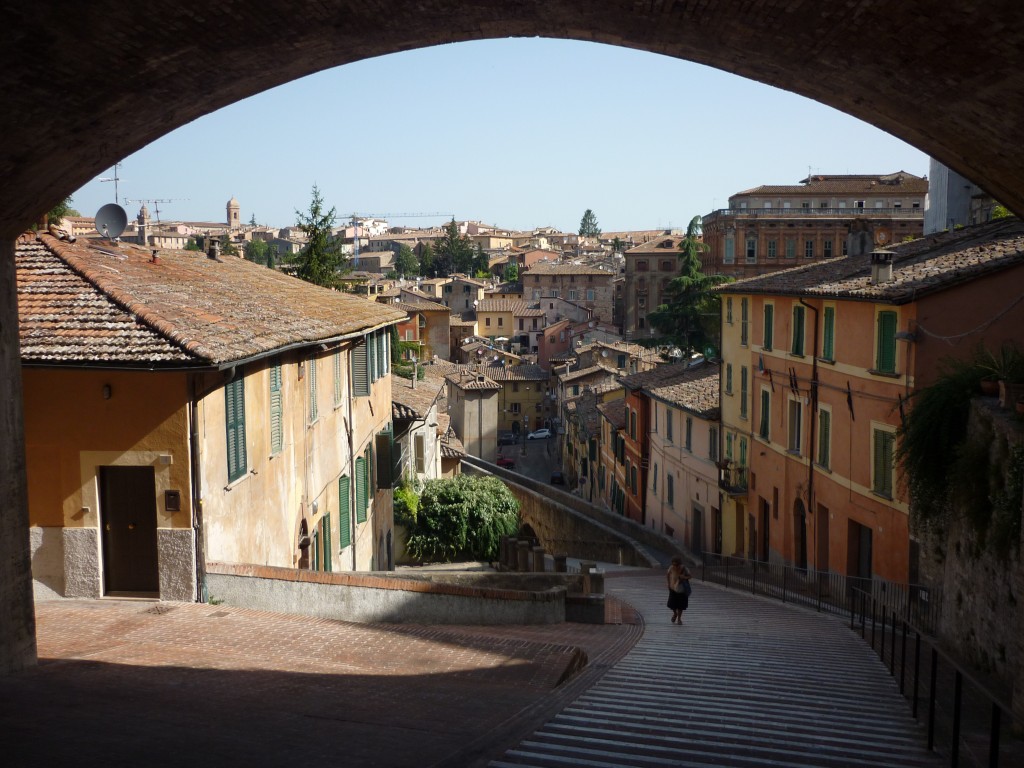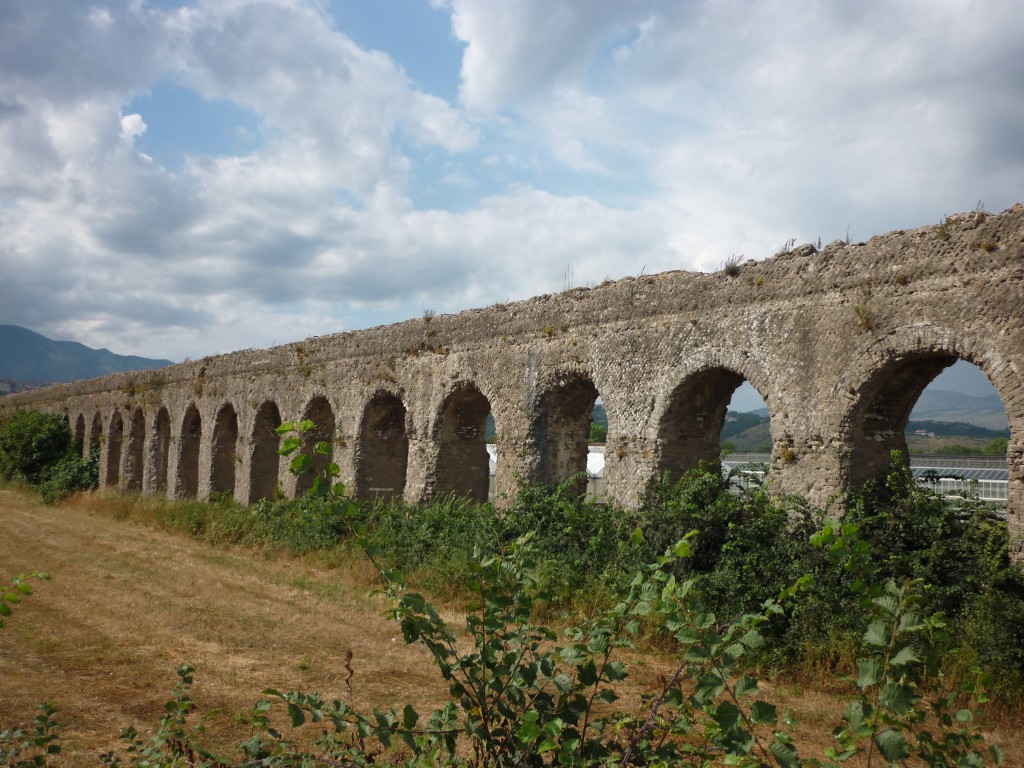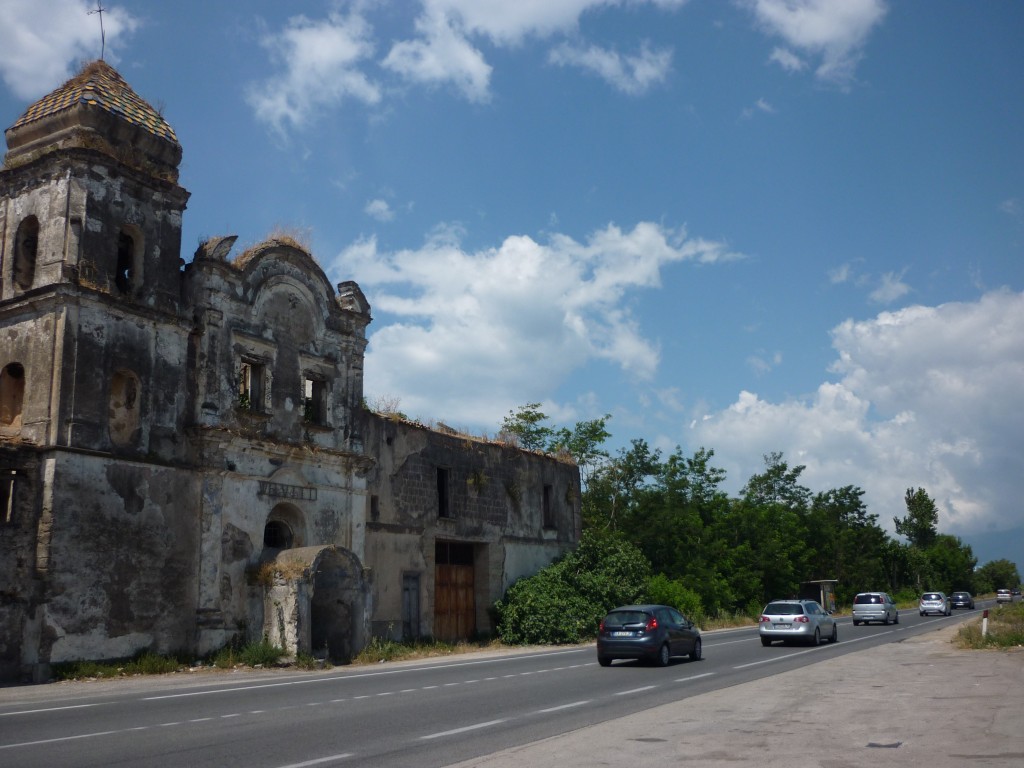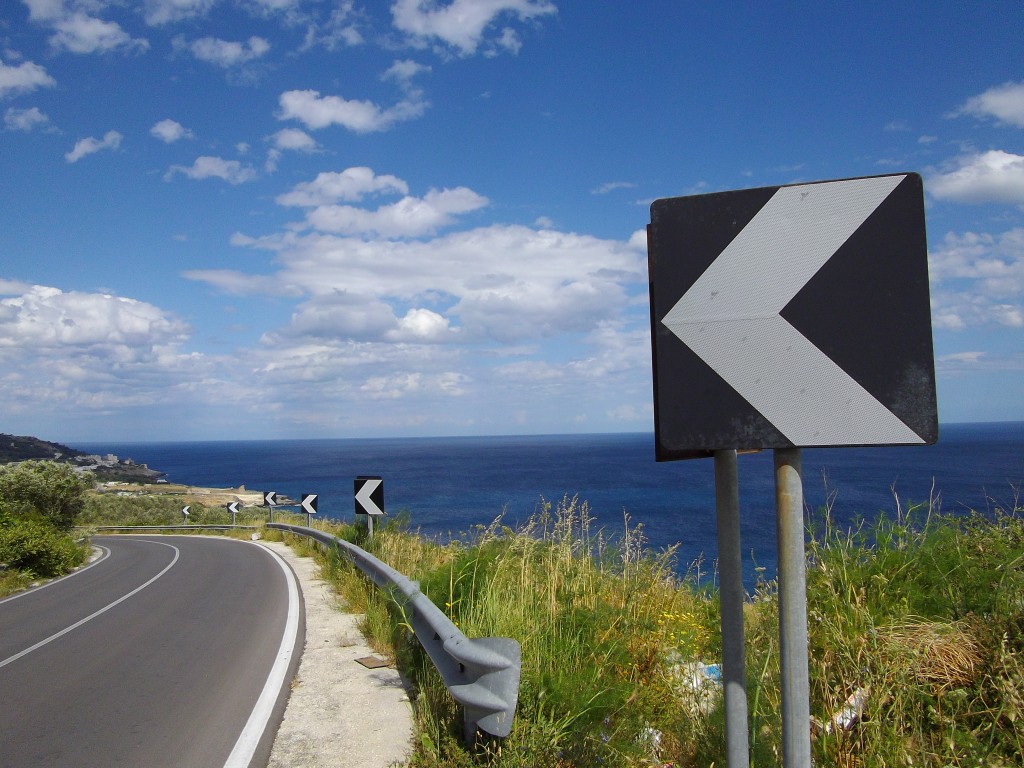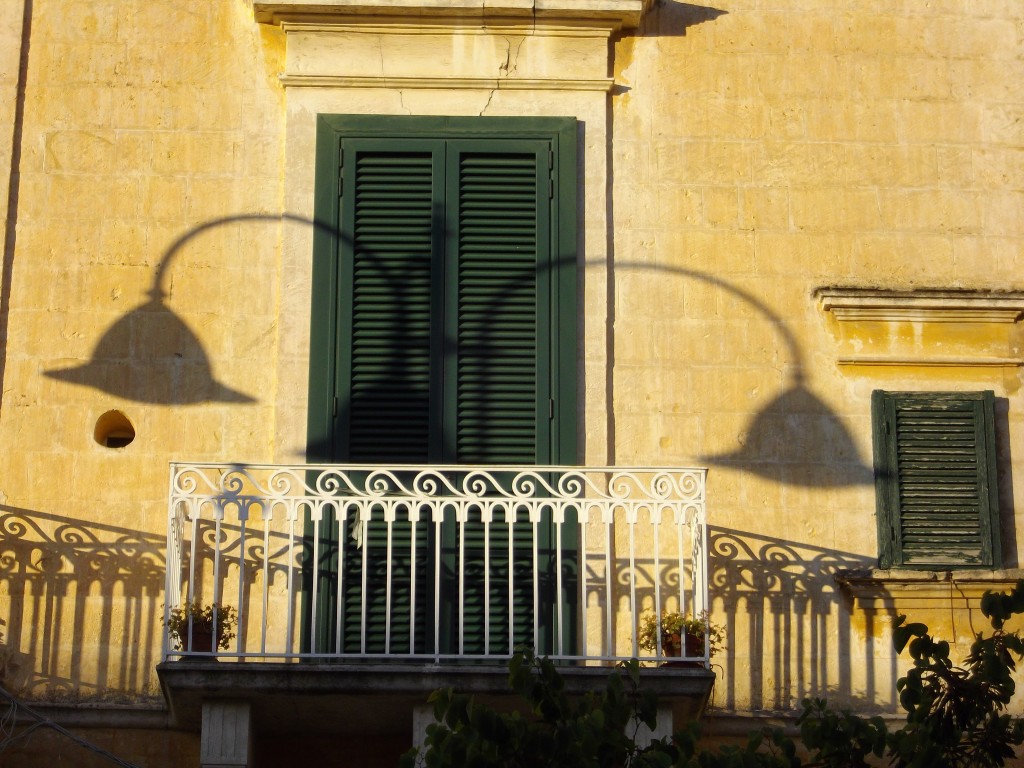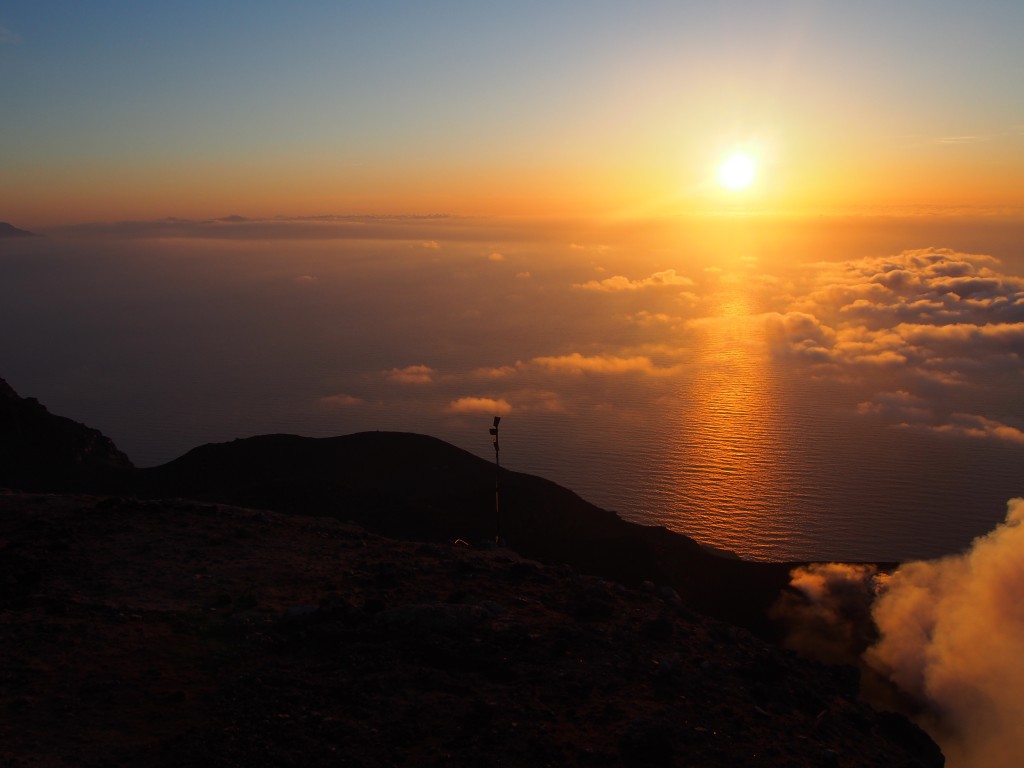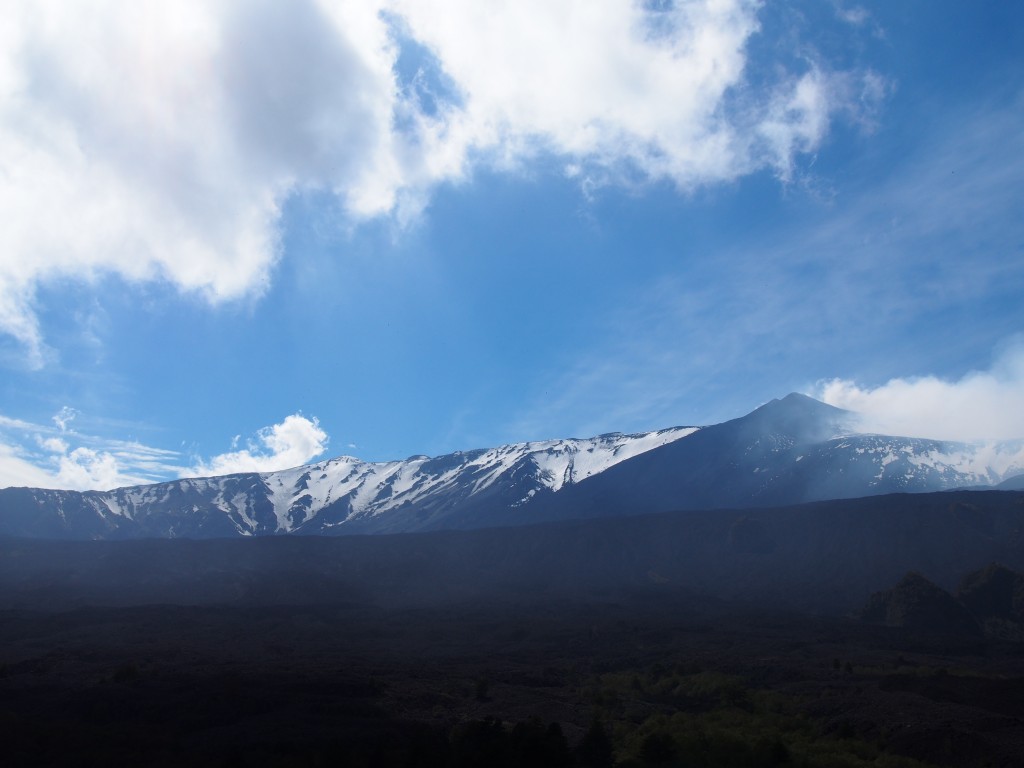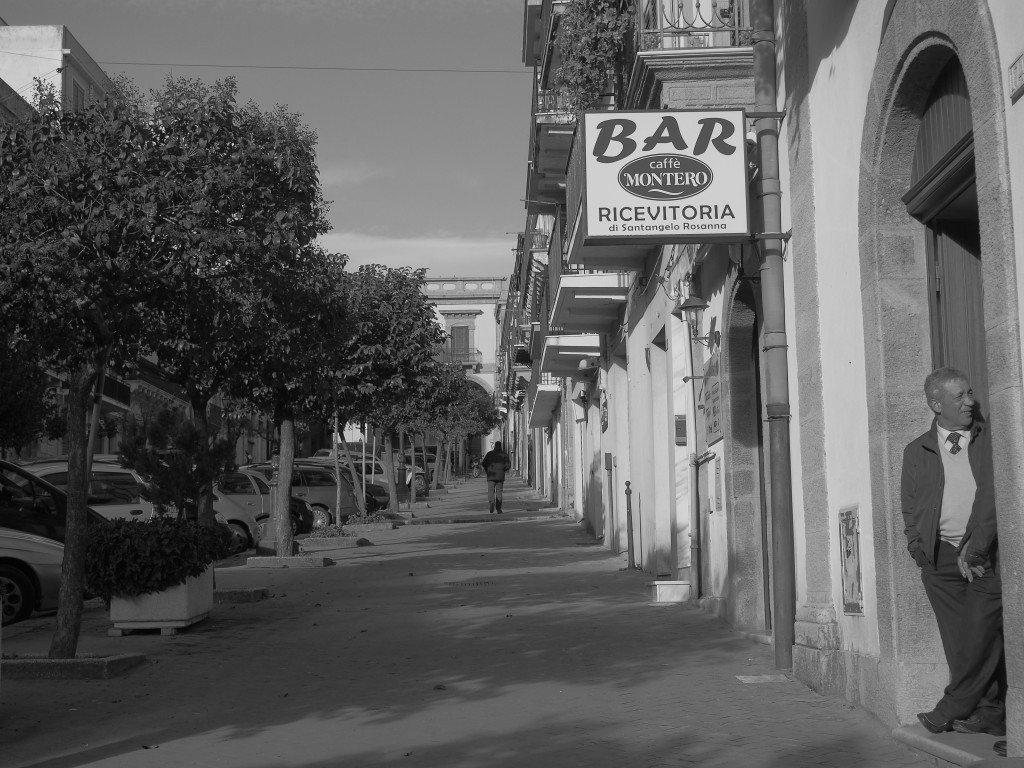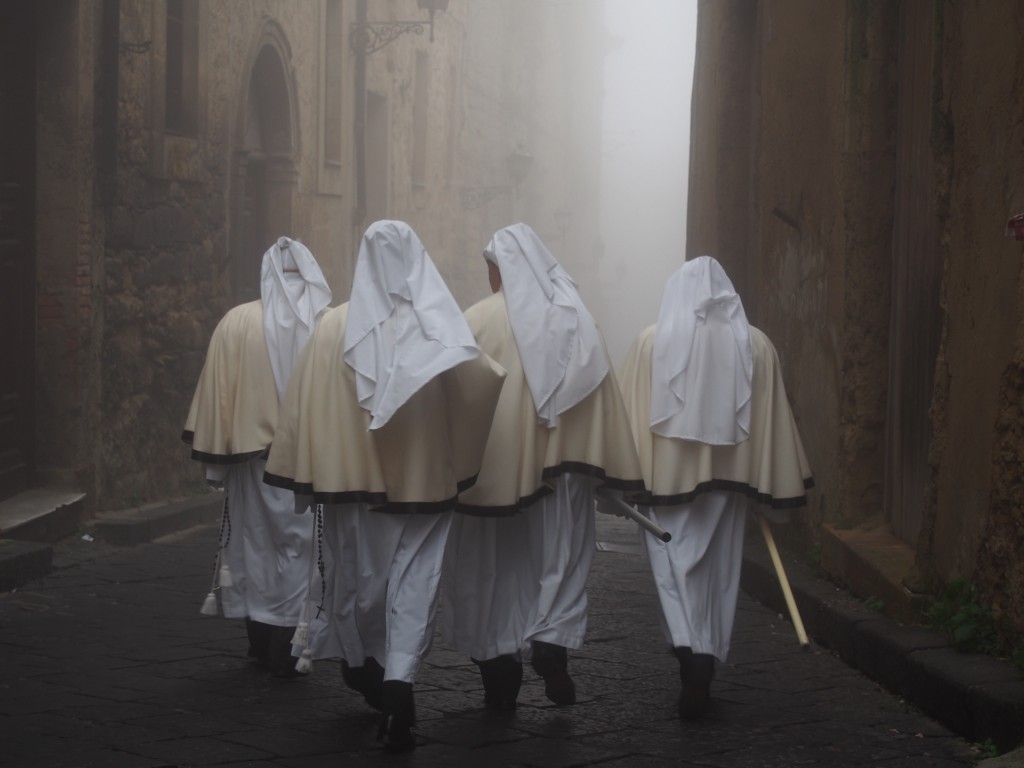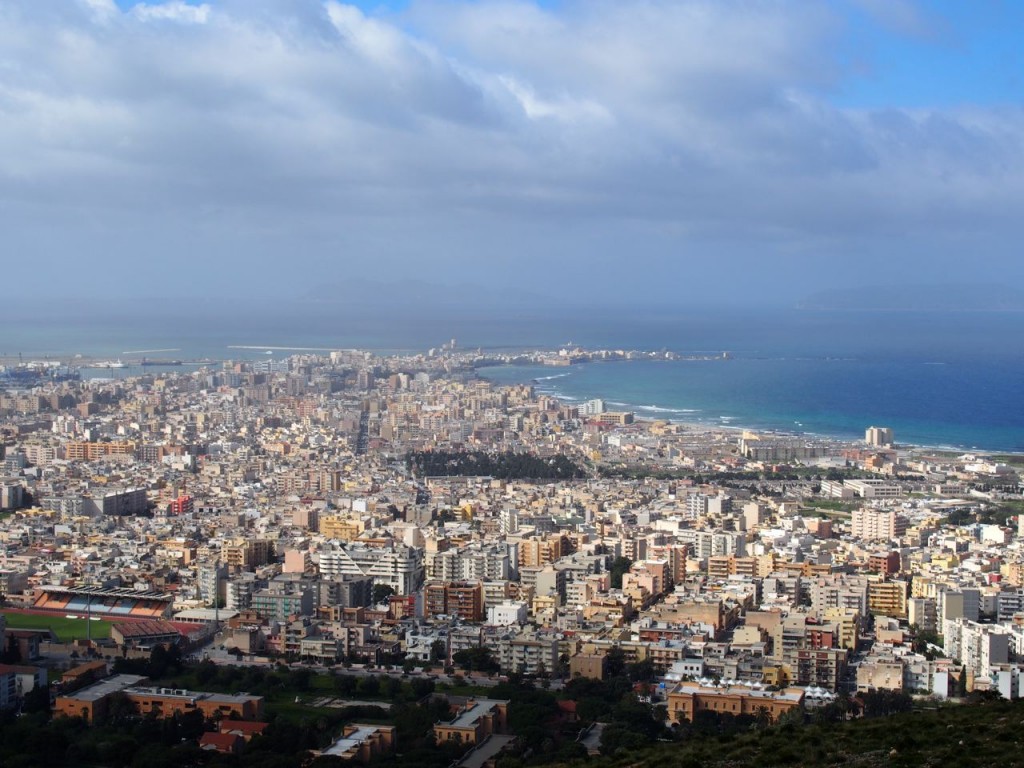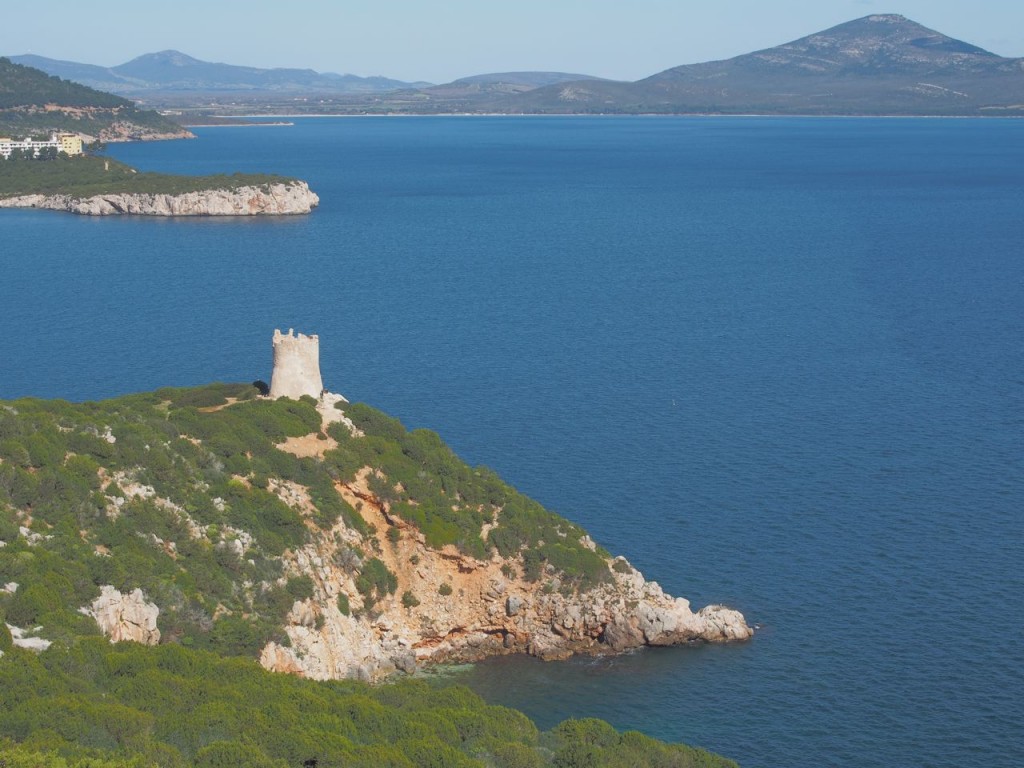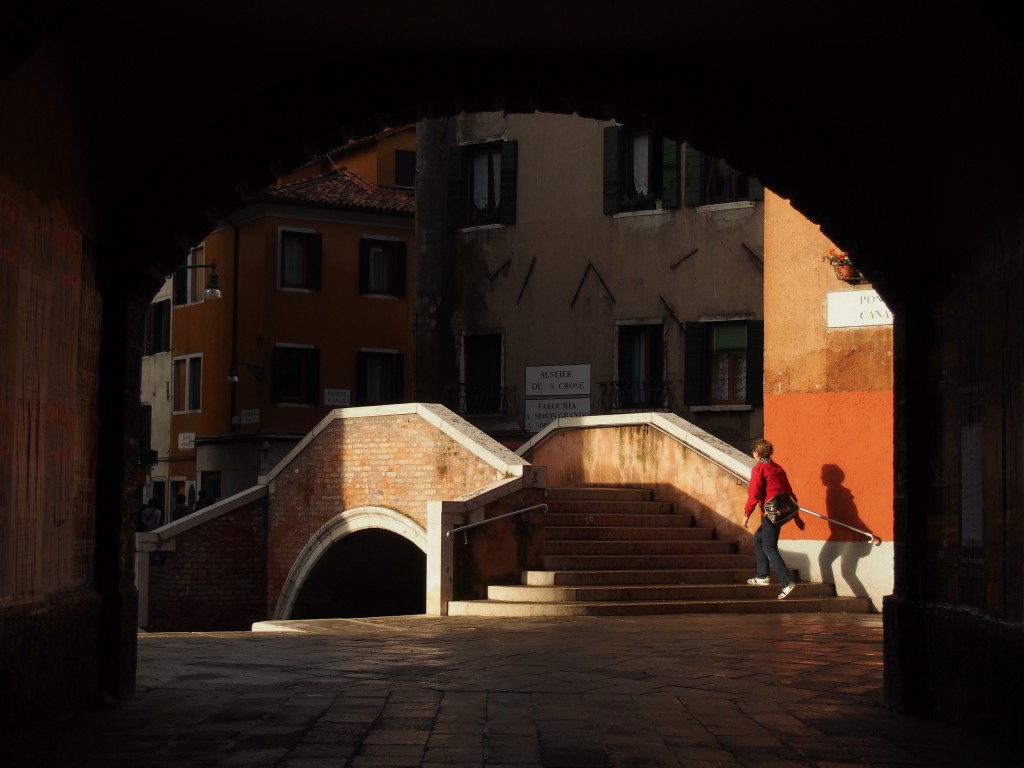Venice, November 8, 2013 the start of the winter: the interiors of a XVIII° Century house – this has been the frame for a special match. A friend is used to gather people once a week for a kind of Saloon still scented and flavoured of that century but attended by very contemporary (and casual) guests: young artists, Venetian or from abroad; musicians; any kind of person could be invited: the host always asks to introduce friends of the friends of …the friends. This unstopped gathering is precious because winter months in Venice bring loneliness.
At one of his Saloons of which I am an avid guest, somebody introduced Rémi Durand-Gasselin, 37, who was in town as ending his pretty unique Italian eight months journey. I asked to interview him; for this I had to wait his return back home, in Paris. Rémi’s portraits illustrating this interview have been taken in Venice by another guest of the house – Francesca Lanaro – at the sunrise ending that Saloon night.
He was and is in the most volatile business sector in Europe (real estate). By truly wishing to mark a turning point of his life momentum, he searched ways to slowly sip again a taste of life, so starting a special travel to break the tiring daily routine effects. Which kind of experience was he, an already skilled traveller, looking for? A very intimate way to find again himself, and he did it alone to let his mumble mumble being heard out loud again. From this experience, the audience can enjoy – apart from what this conversation is able to render – a very nice blog written in two languages and, very soon, a book.
Your history in few lines
I was born on February 8, 1977 and studied at the Toulouse Business School, and then at the Institut d’études économiques et juridiques appliquées à la Construction et à l’Habitation (ICH) and passed the Royal Institution of Chartered Surveyors qualification. I am working in real estate and my job is to value commercial properties.
I feel Paris as my home town. And the world as my playground.
I have been travelling with my parents, my two brothers, my sister and our dog for the first 15 years of my life. I then needed to do things on my own, to see the world my own way.
When I had the opportunity to catch my first professional experience in Australia, I did not hesitate. I studied a lot, from accounting to real estate. I now have a good knowledge of the Parisian office and retail buildings, which I value on a regular basis. I love art: not in the sense that I know of it that much, but it makes my brain breathing and it’s part of the family culture. I often take photographs, to show that there are other ways to see the daily life and the city we live in. And since 2013, I can say that I know how to walk…
8 months, 3.600 km: a very uncanny way to spend a vacation. Is your journey the equivalent of a sabbatical year in which you’re learning rather than spending or consuming?
2013 was a break year for me, a sabbatical year for my job. I tried to stop time and to take it with me. So I went traveling using the slowest means possible, walking!
3.600 Km walking in Italy takes a lot of time and even more patience. It also reduces you to your plain/mere being. It’s like a reset of your brain. Your sole needs are eating, sleeping and socializing. You can fit everything else in you backpack, the 3 t-shirts, 2 pants, 4 pair of socks, 3 under-wears and a jumper. That’s all you’ll wear for the next 240 days.
Which are the encounters you have in the daily work routine?
In my office life, I deal with persons working for their bosses, working for their shareholders. If no original idea is inserted into that chain, everything goes well. So people don’t think, they only execute. I had rare experiences of people thinking to accomplish their jobs differently. I sometimes meet cultured people: they are mostly self-made men with a high and fair understanding of the business.
How hard is it to start an entrepreneur’s activity today and how, then, to stay on the market?
In France, starting an entrepreneurship can be difficult because the regulation in place is too complicated and time consuming for someone willing to do business and not administrative tasks. Moreover, considering the high level of taxes, the risk is not always worth it. But still, some brave people manage to do it successfully.
What has Paris, the society and France done for you?
Providing a safe environment is the most important thing Society (the French state here) is doing for me. Unfortunately this does not allow a lot the citizens being free thinkers.
And what have you offered to Paris? (or society)
My role here is to be as fair as I can with people surrounding me and with those who, I think, deserve it. I don’t consider that paying my taxes is enough, so I try to do more, to be nice and to surprise people. Through CouchSurfing.com, for instance, I host a lot of foreigners who visit Paris. In the building where I live, every time I read a newspaper or a magazine, I leave it at the main entrance so that my neighbours can also read it.
Is there a happy moment in your life you remember with great pleasure?
When I was walking in Italy last year, one day my route ended-up on a motorway without any other solution. As I could not walk on that busy road, I had to ask drivers to help me. I asked the first car that stopped by the coffee station I was waiting at. As surprising as it may seem, the driver was the owner of the agriturismo I was heading to. So unpredictable! So good!
What is your favourite dish? And what is your favourite drink?
Cooking has never been a big thing for me, however, I express the best creativity when preparing a soup, because there are no limits in adding ingredients. And it is always good! I love Pessac-Leognan: it is always a great pleasure to drink it.
Which is your music or the book with you now?
Classical music has never disappointed me yet, so I listen to this charming melodies quite a lot; especially when I’m on my couch, reading a Stefan Zweig’s book. This guy was a genius.
A talent (or a quality) you have and one you don’t have.
One of my skills is to take interesting pictures from surprising perspectives or points of view. But there’s one thing I cannot do, and I’m ashamed of, it is being able to draw.
Which is your relation with the so-called “wandering literature” (as Rebecca Solnitt’s Wanderlust or other authors celebrating this philosophical and physical activity at a time)? What has moved you to start the trip in this way?
Reading the right book at the right moment can change your life. When an author, like Alexandre Poussin, knows how to write, it can hit you hard. In Marche Avant, Alexandre writes about his walking experiences and namely a journey he completed with his future wife Sonia, walking for 3 years from South Africa to Israel.
Which is the most incredible way you felt yourself while starting your pedestrian trip, once in the middle of the way and at its end?
Leaving a 10 year-Parisian life to go walking on your own in Italy is not something you can be prepared for. There aren’t so many people who understand what you are doing. And I probably was not either. I just thought it was possible, and that was it. Before leaving, I have been never scared, nor hesitant. I couldn’t see any obstacle to my dream of crossing a country on foot on my own.
500 Km after the departure, there was a great moment for me as it was the first time I had completed such a long walk. Arriving at the farthest point of the country, in Santa Maria di Leuca, I really felt good, because I knew that from that point, I “only” had to go North to reach my goal, around 2.200 Km away. I felt a great achievement once passing the 3.000 Km mark, in the Cinque Terre National Park. After thinking twice about stopping my trip, I was really proud of myself to have accomplished it. But it was not over yet, as I had the secret dream of arriving by foot to Venice, my final destination – and I did it, 600 Km later. As surprising as it may seem, I had the impression of finishing my trip 2 days earlier, when I only had 50 Km to go which represents less than 1.5% of the total…This was a great satisfaction.
Will you transform your blog I Piedi nello Stivale Italiano and then write a book about your experience? Are you thinking about changing your life after this experience, I mean the way, the place and the kind of work you have?
In 2013 I travelled physically and in 2014 I’m travelling mentally. I’m doing my trip again, one more time, by tipping my daily notes. This will be hopefully transformed into a book that will help me sharing the story of this eight months trip that is always difficult to tell in ten minutes conversation.
Are you thinking about changing your life after this experience, I mean the way, the place and the kind of work you have?
This is a question I have been asked a lot. But the answer is not that straightforward. This experience has definitely changed my way of thinking, of consuming, my priorities and much more. But as I went back to an environment that has remained the same, I feel like a black sheep in a herd. The change is in me and I try to protect it from the daily flow of information and temptations.
Would you like toshare such a fantastic experience with other people in the sense of making it with other people the next time?
This kind of experience can definitively be shared with other people. Walking with a partner can make it very different, but also very useful as you get to know him/her and yourself even better.
I do not think he or she has to be necessarily already a boyfriend or a girlfriend, but has to be somebody close to you. And a person with whom you would like to share a lot. I lived it alone and thought a lot on my own, about myself. I met somebody leaving Tallin for Lisbon, walking in couple, they’re around 30 years old! For instance, I’ve met them in Venice.
I definitively think that walking is a good way to achieve a project with someone. Doing it with another person is like if you choose to live with someone in a very intense way (if you think that normally, by living together, you just spend a few hours in the evening after having had a work day!). When you walk an entire year with somebody, you spend all the moments in 365 days with that person: waking up together, sleeping together, eating together, fighting for everyday troubles together…I’ve not done the experience, but appreciated those coming out positively from it, by surviving to the bad moments and by being fulfilled by the gorgeous ones! It is like a wedding, but there you need 10 years to know your partner: in a walking experience the things are quicker!
Otherness, or being ‘different’: is it a limitation somehow?
Yes, it is. Even if I was choosing to go on my own in a different country where I did not speak the language so well (indeed I’ve learned it in Italy!). Also, the fact that I had to change places everyday did not helped me go in depth relationship with people I was meeting. Also, never being at home, meeting new people every day…to whom (maybe) tell your story again, was nice for for a while, but after 3-4 months, it started being heavy.
This is not my summary but a friend’s one who happened to find the right definition about my states of mind during my pilgrimage: “when there were good things happening to me, it was always when I was on my own. My beautiful moments have never been multiplied by the presence of other people but just from me”. On the other hand, when I was not so well, I was at the same way on my own and this meant that my bad state was harder and lasting longer (when I’m sad in Paris, I can always call a friend and go for a drink and the next day the feeling is gone). When you’re alone, you have to accept it, to analyse it. So, these have been the “limitations” of my trip, if you want to call them so.
Have you found a new love after the walking experience?
No, not immediately. And not related to my trip. Well, to go further on this point…To be honest…When I came back, I was happy to see my family and friends, even my colleagues! I was mainly happy to find some rules after it: when you’re alone for eight months, you walk with only one mission (in my case, to reach Venice) but I could then decide to stop, to continue after 3 days, how many km to walk a day, to stop the trip at all, at what time and where to eat…
And beside rules, were you happy to find the routine as well?
Yes, in a certain sense I was. Better to have it and do not think so much. But, the moment I think, I’m telling myself…: “what a hell I am doing here!” And this is difficult!
